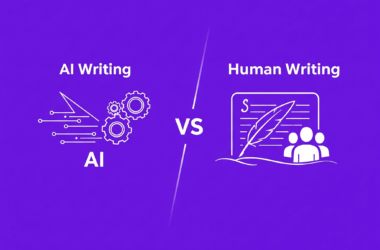Last updated on February 20th, 2024
We get it—blogs in today’s world? With attention spans dwindling and video content taking over asking ‘do people still read blogs’, is a fair question. But guess what? In our survey of 249 people across India and the US, we decided to cut through the noise and settle the score.
In this post, we’ll explore why blogs are still in the game, defying the odds in a world dominated by fleeting attention spans and the surge of video content. Let’s dive in!
Are Blogs Still Relevant?
When we were looking at the State of Marketing Report 2023, business owners were asked about what makes their content marketing a success, it suggests 47% of businesses conducted audience research for better content. Even Google prioritizes quality content for its user’s satisfaction. What does that signify?
This means that generating valuable content for the audience has never been more significant. Blogs are a great way to go about it. Whether it is delivering information, business blogging, or simply entertainment, with the right framework of blog content, SEOs, and thought leadership, blogs can generate sales, tap into a global audience, and do wonders for your brand sales.
Blogs are efficient marketing assets. They are characterized by their reliability and organic appeal, which propel them to the forefront of effective marketing strategies.
Well-crafted blogs aren’t just casual reading; they’re strategic powerhouses seamlessly integrating valuable content into readers’ lives.
Getting good visibility on Google with efficiently crafted blogs can drive customer traffic towards targeted products or businesses and boost ROI.
Results of Our LinkedIn Poll: Do People Still Read Blogs?
No need for speculation—we took the direct route and polled our LinkedIn audience about their blog-reading habits.
Here are the results:

According to the survey results above, 35% read blogs daily. Also, 18% read at least once a month, compared to 14% who don’t read at all.
There is still a fair 33% who love reading blogs at least once a week, compared to 35% who consume blogs daily. On a positive note, this data reveals how people still love reading blogs, and this traction to blogs is what converts into promising clients later on.
We know that people still love blogs, but to further understand what everyone’s reading online, let’s have a look at the survey below.

The data above shows how most of the readers online use blogs to navigate their daily lives. It is important to understand what the audience is looking for in online content. From a marketing aspect, quality content in blogs will define their search engine ranks and organic click rates.
To know more about why people engage in blogs, let’s have a look at a few reasons below:
1. Blogs Are a Great Way to Learn New Skills
People look up Google for self-help guides, daily chore hacks, quick tutorials to make life easier, or simply browse out of curiosity. Blogs covering these simplicities of life would get more reach than an overly informative blog with little curiosity factor.
2. Blogs Are like Tabloids, Only More Convenient to Read
One of the most effective topics for generating curiosity is entertainment. Packed with interactive multimedia graphics and stories, entertainment blogs make a clever content package for a curious audience.
3. Blogs Offer Industry Insights and Career Guidance
People are indulging more in reading about the latest industry trends, marketing strategies, or guides to starting a new career. Regularly blogging about these topics helps readers build trust in the blog content and helps build a loyal organic audience.
These are some great ways to generate more clicks for blogs, but keeping the blogging game relevant in marketing is essential. We’ve jotted down a few effective tips for optimizing blogs. Read on.
How Do You Get Your Blog Seen?
With good readership engagement in blogs, it’s necessary to optimize the content strategy for maximum marketing output. Understanding the points addressed below will help blogs grow substantially.
Ranking on Google Search Results
- One of the most important factors for blogs to rank on Google search results is SEO optimization. Getting the right keywords through keyword research tools and including them strategically throughout the blog is essential. For example, including a keyword in the blog title helps it rank higher in Google search results.
- Optimizing blog URLs and including keywords in URLs allows the blog link to rank higher.
- As SEO-optimized images and videos add great value to blogs, it also gives blogs another advantage on search engines.
- Analyzing the website metrics helps optimize blog performance and generate more blog clicks.
Building Thought Leadership
- Before building a thought leadership strategy for blogs, we must first seek out the target audience and research what they wish to read in blogs.
- Once that’s done, analyzing competitors gives us a chance to produce valuable content that is getting missed.
- Being authoritative and regular on social media platforms helps the brand’s voice reach the targeted communities.
- Furthermore, getting the content out through webinars, social media content, ebooks, and videos ensures more visibility.
Providing In-Depth Information
- Google ranks in-depth articles higher than any other. Therefore, instead of opting for short blogs with little information and giving out valuable content, leveraging thought leadership tactics would benefit readers more.
- In-depth research on a given blog topic, with data backups from trusted sources as backlinks, would make up a credible blog.
- Additionally, giving out expert advice, original quotes, and knowledge allows the readers to learn and follow. This guarantees the credibility of blogs and builds a brand community.
- Lastly, let’s not forget to pack our blogs with multimedia.
Do Blogs Remain a Favorite for Readers and Marketers?
The answer is yes, they do.
Blogs tap into people’s curiosities and give out information in easy-to-understand and easy-to-share content. There’s nothing more delightful for readers than to easily get the required information on Google search results and read a whole blog about it.
For brands, let us look at one last survey data point that concerns key content marketing goals for 2023.
According to the information above, one of the most crucial aspects of marketing goals is increasing brand awareness. But what does that mean for blogs? With the versatility that blogs provide in the marketing avenue, it means that if the brand needs to connect with its audience, blogs are a great way to bridge the gap. Blogs can be shared further on social media and repurposed to fit a new module for brand awareness.
This marketing game, in the long run, will help build connections, invite leads, increase brand presence, and build a solid foundation in targeted communities.
Reasons Why People Quit Reading a Blog
Before discussing the whys, let us look at one more survey below.
As mentioned above, while 38% of the readers are a mix of deep reading and skimming, there are still 35% who skim through blogs. Other than the reader pattern, whether the reader would indulge in a blog completely depends on the quality and value of that blog.
There are multiple reasons why the blog fails to entertain online readers. Some of the major reasons could be as follows:
1. The Blog’s Too Scrappy
Poor introductions, vague outlines, and irrelevant sentences confuse the readers. With a lack of clear language, the blog loses its content value.
2. Lengthy Blogs, Zero Graphics
Forgetting to add catchy multimedia graphics or using complicated language leads to a boring blog that might get overlooked.
3. Not Getting to the Point
Using confusing language and delaying the point is going to confuse the readers, and they might not trust the blog’s content.
Content creation is a great way to boost your business online. With consistency and quality in your blogs, it’s possible to build a reliable clientele and returning customers who love reading the company’s stories through blogs.









